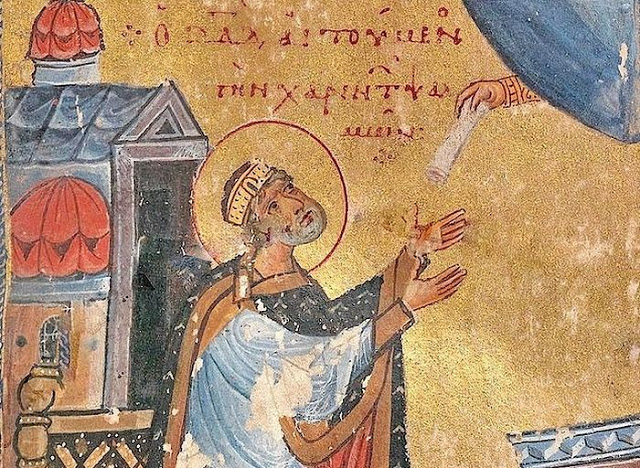
Even the worst sinners have their moments of heartfelt remorse from time to time. It is at those moments that they struggle to find a source of comfort and run to their neighbors, sharing their sorrows and asking to teach them what to do and how to be saved.
Dear brothers! If a great sinner comes to you and asks for your help, what would you do? I don’t know. Generally, it should be noted that some people prefer either to cast those known as great sinners away or preach at them profusely to ensure that they would never come to us again. It’s wrong. It seems to me that we could reduce the number of those great sinners if we treated them meekly and leniently, and poured the balm of mercy on their wounds.
Once upon a time, Saint Serapion came to the town from the desert out of necessity. He saw a harlot and he was sorry for her. He began asking God to save her. God listened to his prayer. The harlot fell to his knees and cried out: “Father, have mercy: take me wherever you want. I want to be saved: isn’t it the reason why the Lord has sent you?” Serapion took the harlot with him and brought her to a convent. He entrusted the harlot to the abbess of that convent and told the latter, “Don’t encumber her with any penance: let her work to get saved as much as she wants; don’t bother her.” Guess what happened? His kind instruction yielded good fruit. The more meekness and love the sinful woman received, the deeper she recognized her own flaws and the more eagerly she tried to make amends. After a while, she decided to eat once a day, then once every second day, then she went into seclusion, and finally, the author concludes, “she repented and pleased the Lord, and reposed peacefully in the Lord.”
That is why we should handle penitent sinners in the spirit of meekness taught by the Gospel, rather than assail them with words of harsh reproach. If we want to move a tree from bad soil into good soil, we never tear it out: rather, we dig around its roots with great caution; otherwise, we can kill the poor tree. We should treat penitent sinners like dying trees that can recover: if we want to transfer them into the Lord’s Vineyard, we should handle them with meekness and caution. Amen.
Translated by The Catalog of Good Deeds



